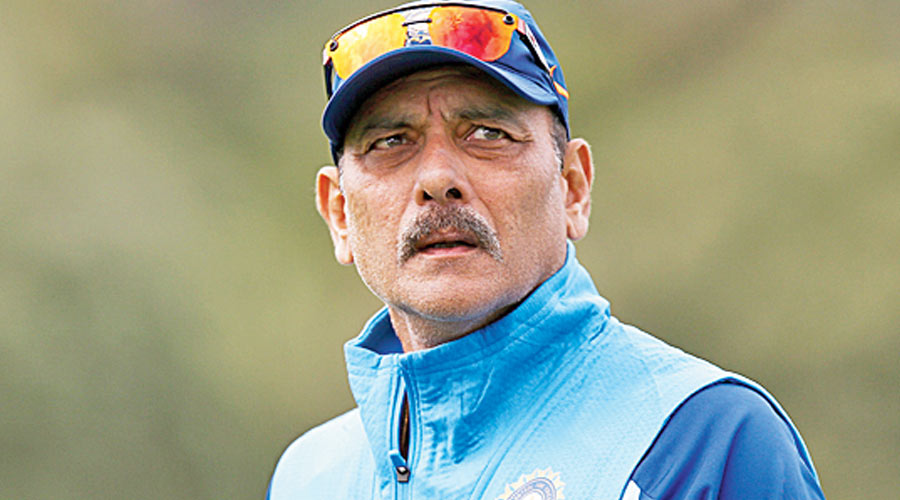Book: Stargazing: The Players In My Life
Author: Ravi Shastri
Publisher: HarperCollins
Price: Rs 699
Ravi Shastri, to use a cliché, has worn many hats in his over-40-year career in cricket. He made his Test debut (along with Kirti Azad and Yograj Singh) on a cold February day in Wellington in 1981, a few weeks short of his 19th birthday, flown in as an urgent replacement for the injured left-arm spinner, Dilip Doshi. Shastri bagged three wickets in each innings of the Test, came in to bat at No.10 and though India lost by 62 runs, it marked the beginning of a long association with the sport for the lanky lad from Bombay (now Mumbai).
He quit international cricket in 1992 and then made a seamless transition into the commentary box, becoming one of India’s best-known broadcasters who was not afraid to call a spade a spade. In time, he again made a career switch, taking on the mantle of India’s team director and then head coach, a position he held until very recently.
As he has himself often stated, Shastri wasn’t particularly gifted but what made him an integral part of cricket was his obduracy, grit and sharp understanding of the game. Many believe he would have made a fine captain (he led the side in only one Test, and won). Though he began as a lower order batter, Shastri soon moved up the order, even opening the innings. He has hundreds in the West Indies and Australia, is one of three Indian batsmen to have batted on all five days of a Test match (M.L. Jaisimha and Cheteshwar Pujara are the others, incidentally all three feats being performed at Eden Gardens, Calcutta) and even hit six sixes in an over in a Ranji Trophy match in 1985. The same year he won the Champion of Champions award in the Sunil Gavaskar-led team’s Benson & Hedges World Series triumph in Australia and made the Audi a household name in India.
Stargazing: The Players In My Life, which Shastri has co-written with the journalist Ayaz Memon, is in many ways the cricketer’s homage to the game. Much like what Shastri’s “mentor” Sunil Gavaskar did in his book, Idols, published in the early eighties, where he had written about 30-odd cricketers he admired.
The list of players Shastri discusses is impressive. Garfield Sobers, Ian Chappell, Gavaskar, Tiger Pataudi, Gundappa Viswanath, Imran Khan, Ian Botham, Kapil Dev, the great Indian spin quartet to modern day icons such as Mahendra Singh Dhoni, Virat Kohli, Kane Williamson and Ben Stokes are among the 82 cricketers Shastri has paid tribute to over 288 pages.
And therein lies the problem. Stargazing, on the whole, is a disappointment. Given Shastri’s vast experience and the fact that he has seen the sport up close and personal, he could have offered far more insight into the cricketers and their careers. Instead, much of what he has written is already well known and has been frequently documented. To do justice to 82 cricketers over less than 300 pages is a tough ask and the book comes up short.
And while Shastri the commentator is not known to mince his words, he has chosen not to tread into controversial areas. For example, his chapter on Sourav Ganguly is again a summary of the former captain’s career. Shastri chooses to steer clear of the Greg Chappell episode though one would have liked to know what he thought of it. He does make a mention of it in his brief write-up on Greg, just to say whatever happened was “unfortunate”.
However, there are some interesting nuggets. Like his anecdotes on Imran, Arjuna Ranatunga or Ian Chappell to bring out the way the three former and inspirational captains played their cricket.
He also shares his admiration for Sobers, describing him as “the most versatile and compelling cricketer of all time” and narrates a meeting he had with the great West Indies all-rounder, who had a word of advice for the younger man: don’t underestimate yourself, no matter the reputation of the opponent.
The chapters on Martin Crowe, Malcolm Marshall and Dean Jones are poignant; and his respect for Richie Benaud, whom he describes as the “best-known TV commentator in the game”, shines through.
But these are too few and far between. Shastri could have shared with readers insightful anecdotes and given his views on what drove these cricketers to be the champions they are.











